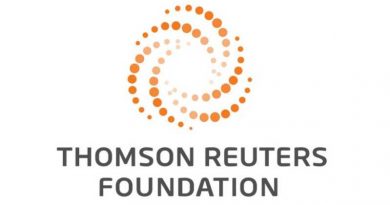SPOUSAL VIOLENCE POLL RESULT
In Nigeria, victims of Spousal violence also called intimate partner violence, domestic abuse, and intimate partner abuse, are afraid to report incidents because of sociocultural repercussions such as stigmatization and victimization etc. In recent times, there has been a rise in the occurrences of Spousal violence were lives have been unjustly and untimely terminated in a bid to exact vengeance, vent anger or personal retribution rather than seeking justice through established legal systems. Several factors contribute to this terrible crime such as Poverty, illiteracy, parental neglect and abuse, sense of low self-worth, toxic masculinity and femininity and most prevalently: substance abuse1. However, as this issue has drawn more attention from national and international communities, activists on social media, concerned agencies and groups, the number of women and men who are reporting their experiences of domestic violence has risen over the past couple of years, yet the question remains: Has this changed anything? Has there been a substantial variation in the prevalence and incidences of domestic violence?
Considering this, NOIPolls conducted a public opinion poll to gauge the opinion of Nigerians regarding spousal violence in the Country. Initial findings show a 56 percent prevalence rate in violence of husbands against wives with the North West (66 percent) having the highest proportion of respondents who attest to this. The poll further revealed that 47 percent of Nigerians believe that violence by wives against husbands is prevalent with the highest attestation coming from the North West at 57 percent. Differently, 53 percent of respondents opined that this is not prevalent as the North East (67 percent) rank highest regarding those who are of this belief.
It is comforting that 100 percent of Nigerians-polled agree that it is not justifiable for husbands to assault/abuse their wives and vice versa, this is also consistent across the six geo-political zones respectively. The poll also sought the measures to curb the issue of spousal violence in our society and the results show that 40 percent of respondents stated that there should be public enlightenment while 24 percent stated “there should be marriage counselling for couples”, 13 percent opined that “culprit should be punished by law” while 10 percent stated that “there should be respect for one another”. These are key findings from the poll conducted by NOIPolls in commemoration of the International Women’s Day in the week commencing 24th February 2020.
Background
Spousal violence also be called intimate partner violence, dating violence, domestic abuse, and intimate partner abuse is any form of physical, psychological, or sexual maltreatment that takes place in a romantic relationship between adults or adolescents. Spousal abuse is a major public health problem, due to its affecting more than 2 million women and 800,000 men and resulting in homelessness, injury, or death of victims, billions of dollars in health care costs, and lost work productivity.
While spousal abuse strikes couples of all races, religions, social economic status, and sexual orientations, risk factors for men or women becoming victims or abusers include as poverty, illiteracy, parental neglect and abuse, sense of low self-worth, toxic masculinity and femininity and most prevalently substance abuse. Warning signs for individuals to consider if they suspect they are the victim of intimate partner violence include feeling demeaned, assaulted, or excessively controlled by their partner.
1 https://www.medicinenet.com/domestic_violence/article.htm
Warning signs friends, family members and close accomplices can look for if they wonder whether the person they care about is the victim of spousal abuse include frequent absences from school or work, numerous injuries the victim tries to explain, low self-esteem, a change in their personality, fear of conflicts, passive-aggressive behaviour, blaming him- or herself for the problems in their relationship, isolation from others, or stress-related physical symptoms . 2
This year, albeit early, has seen an increasing trend of spousal violence which demands immediate resolution. For instance, there is the case of Maryam Sanda who was recently convicted of killing her husband, readily comes to mind. She was sentenced to death by hanging for killing her husband. Other cases of this nature who were alleged to have killed their spouses include that of Racheal Adetsav in Benue state, Eki Ekhator in Edo state, Udeme Otike- Odibi in Lagos state, Mr. Ejiro Patrick in Benue state, Insp. Tuddy Warebayigha in Bayelsa state, Mr Ikechukwu Atansi in Anambra state etc. Against this backdrop, NOIPolls conducted a survey to gauge the opinion of Nigerians regarding this issue and hereby present its findings.
Survey Findings
Survey findings show a 56 percent prevalence rate in violence of husbands against wives with the North West (66 percent) having the highest proportion of respondents who attest to this. Furthermore, the poll shows that there are more Females (59 percent) than Males and age group 36-60 (58 percent) have the highest proportion of respondents who stated that violence of husbands against wives is prevalent. Inversely, 44 percent of respondents stated that violence of husbands against wives is not prevalent with the South East (55 percent) having the highest proportion of respondents who stated that husbands violence against wives is not prevalent.

Regarding the prevalence of spousal violence of wives against husbands, 47 percent of Nigerians indicated prevalence in their locality, with the North-West geo-political zone being the most prominent in Nigeria. Interestingly, the poll revealed that the age group of 18-35 years (51 percent) of respondents stated that spousal violence of wives against husbands is prevalent.
2 https://www.medicinenet.com/domestic_violence/article.htm
Subsequently, 53 percent of the respondents polled stated the spouse violence of wives against husbands is not prevalent. The poll also showed that, the age group of 60 years and above have the higher proportion of respondents (66 percent) who stated the spousal violence of wives against husband is not prevalent.
Additionally, the poll sought to gauge how justifiable it is for husbands to assault/abuse or kill their wives and how justifiable it is for wives to assault/abuse or kill their husbands and it is interesting to see that in both cases 100 percent of the respondent stated it is not justifiable. Correspondingly, analysis across gender, geo-political and age all recorded 100 percent of respondents stating that it is not justifiable for both husbands and wives to assault/abuse or kill their spouses.
Furthermore, the poll also sought the measures to curb the issue of spousal violence in our society and the result show that 40 percent of respondents stated that there should be public enlightenment while 24 percent stated “there should be marriage counselling for couples”, 13 percent opined that “culprit should be punished by law” while 10 percent stated that “there should be respect for one another” among others.
To sum up, the poll result
reveal that 56 percent of respondents stated that spousal violence of husbands violence is prevalent while 47 percent of respondents stated that spousal violence of wives against husbands is prevalent. Interestingly, 100 percent
of Nigerians-polled agree that it is not justifiable for both husbands and wives to
assault/abuse or kill their spouses. The poll also sought the measures to curb the issue of spousal violence in our society and the result show that 40 percent of respondents stated that there should be public enlightenment while 24 percent stated “there should be marriage counselling for couples”, 13 percent opined that “culprit should be punished by law” while 10 percent stated that “there should be respect for one another” among others.
Survey Methods
The opinion poll was conducted in the week commencing February 24th, 2020. It involved telephone interviews of a proportionate nationwide sample of 1,000 randomly selected phone-owning male and female Nigerians aged 18 years and above, representing the six geo-political regions and 36 states and the FCT of the country. Interviews were conducted in 5 languages – Igbo, Hausa, Yoruba, Pidgin English and English. Although we can say with 95% confidence that the results obtained were statistically precise – within a margin of error of plus or minus 4.65%; we recognize that the exclusive use of telephone polling has its limitation of excluding non-phone-owning Nigerians. Nonetheless, with the country’s tele density put over 100 percent by the Nigerian Communications Commission (NCC), we consider our telephone polling approach appropriate. Also, given the rigorous scientific process of randomization and stratification applied, we can confidently stand by the validity of our methodology and approach. NOIPolls Limited, No1 for country specific polling services in West Africa. We conduct periodic opinion polls and studies on various socio-economic and political issues in Nigeria. More information is available at www.noi-polls.com.
Disclaimer
This press release has been produced by NOIPolls Limited to provide information on all issues which form the subject matter of the document. Kindly note that while we are willing to share results from our polls with the general public, we only request that NOIPolls be acknowledged as author whenever and wherever our poll results are used, cited or published. NOIPolls hereby certifies that all the views expressed in this document accurately reflect its views of respondents surveyed for the poll, and background information is based on information from various sources that it believes are reliable; however, no representation is made that it is accurate or complete. Whilst reasonable care has been taken in preparing this document, no responsibility or liability is accepted for errors or fact or for any views expressed herein by NOIPolls for actions taken as a result of information provided in this report. Any ratings, forecasts, estimates, opinions or views herein constitute a judgment as at the date of this document. If the date of this document is not current, the views and content may not reflect NOIPolls’ current findings and/or thinking.



